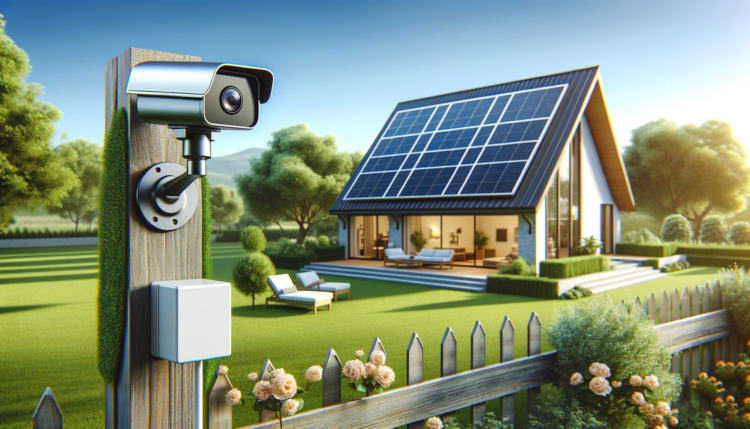
Introduction to Solar Security Cameras
In an era where sustainable solutions and technological advancements go hand in hand, solar security cameras have emerged as a front-runner in the realm of home and business security. By combining the reliability of surveillance technology with the eco-friendly and cost-effective nature of solar power, these cameras represent a significant step forward in security solutions.
Overview of Solar Security Cameras
Solar security cameras are innovative security devices that operate using solar panels to harness energy from the sun. This energy is then converted into electrical power, effectively running the camera without the need for traditional electricity sources. These cameras offer a blend of sustainability, efficiency, and convenience, making them increasingly popular in both residential and commercial settings.
Their design typically involves a compact, integrated solar panel, often mounted directly on the camera or positioned nearby. This setup ensures that the camera remains operational even in areas without access to conventional power grids, making them ideal for remote locations, outdoor settings, and places where wiring installations are challenging or impractical.
The Growing Importance of Renewable Energy Sources in Security Technology
The shift towards renewable energy sources in security technology underscores a broader global movement towards sustainability. As concerns about environmental impact and energy consumption continue to rise, the adoption of solar-powered devices, like solar security cameras, has become more than just a trend – it’s a necessity. These cameras not only reduce carbon footprints but also offer a more sustainable and long-term solution for security needs.
In addition to their environmental benefits, solar security cameras are lauded for their low operating costs. Once installed, they require minimal maintenance, drawing energy from a renewable source that is both abundant and free. This aspect is particularly appealing to those looking to reduce their energy bills and maintain effective surveillance systems.
Preview of this Solar Security Cameras Article Structure and Key Topics
This article aims to provide an in-depth look at solar security cameras, covering various facets from their operational mechanisms to the benefits they bring. We will delve into the types of solar security cameras available, key features to consider when choosing one, and the intricacies of installation and maintenance. Additionally, we will explore how these cameras integrate with broader home security systems and the future trends and innovations shaping this technology.
As we navigate through these topics, our focus will remain on educating readers about the practicalities and advantages of solar security cameras, while highlighting their role in the evolving landscape of renewable energy and advanced security solutions. Looking for the best solar powered security cameras on the market? We got you covered here: Best Solar Powered Security Cameras in 2024
Looking for the best solar security camera? Jump to our other articles:
Also, see our other article:

Understanding Solar Security Cameras
How Solar Security Cameras Work
Basic Principles of Solar Power
A security solar camera operates on the fundamental principles of solar energy, a process where solar panels convert sunlight into electrical power. These panels comprise photovoltaic cells that absorb photons from sunlight, creating an electric field across layers of silicon, which generates electricity. This electricity is then used to power the camera.
Integration of Solar Panels with Camera Technology
The integration of solar panels with camera technology is a seamless blend of energy efficiency and advanced surveillance. Solar security cameras are equipped with batteries that store the solar energy, ensuring continuous operation even when sunlight is not available, like during nights or cloudy days. This integration allows the cameras to be self-sustaining, requiring minimal external power sources.
Types of Solar Security Cameras
Fixed vs. Pan-Tilt-Zoom (PTZ) Cameras
Solar panel security camera come in two primary types: fixed and pan-tilt-zoom (PTZ). Fixed cameras are stationary, providing continuous monitoring of a specific area. They are simpler in design and often easier to install. PTZ cameras, on the other hand, offer more flexibility. They can pan (move horizontally), tilt (move vertically), and zoom, allowing for a wider range of surveillance and the ability to focus on specific areas or subjects as needed.
The 4K solar security camera is a cutting-edge surveillance solution that offers unparalleled clarity and detail in video footage, thanks to its ultra-high-definition resolution. Its innovative solar-powered design ensures continuous operation without the need for frequent battery changes, making it an eco-friendly and cost-effective choice for home or business security. With advanced features like motion detection and remote monitoring, this camera provides peace of mind and top-tier security performance.
Differences in Design and Functionality
The choice between fixed and PTZ solar security cameras often boils down to the specific surveillance needs. Fixed cameras are ideal for monitoring entrances or areas where constant observation is required. PTZ cameras are better suited for larger areas, where the ability to remotely control the camera’s movement is beneficial.
The Benefits of Solar-Powered Security
Environmental Impact
One of the most significant benefits of solar security cameras is their minimal environmental impact. By harnessing renewable solar energy, these cameras reduce reliance on fossil fuels and lower greenhouse gas emissions. This eco-friendly approach aligns with global efforts to combat climate change and promotes sustainable practices in security technology.
Cost-Effectiveness and Energy Efficiency
Solar security cameras are not only environmentally friendly but also cost-effective. The initial investment in solar technology can be offset by the savings on electricity bills and the low maintenance costs. Their energy efficiency is a key factor, especially in areas with high electricity rates or limited access to power sources.
Reliability and Performance in Various Conditions
These cameras are designed to be reliable under various conditions. High-quality solar panels can generate sufficient power even on cloudy days, and efficient battery storage ensures continuous operation. The durability of solar security cameras is further enhanced by their ability to function in diverse environments, from urban settings to remote areas, providing consistent performance without the need for conventional power sources.

Key Features to Consider in Solar Security Cameras
Solar Panel Efficiency
Understanding Solar Panel Ratings
When considering a solar security camera, the efficiency of the solar panel is a crucial factor. Solar panel efficiency refers to the amount of sunlight the panel can convert into usable electricity. This efficiency is typically indicated by a percentage rating – the higher the percentage, the more efficient the panel is at converting sunlight into energy.
Several factors affect solar panel efficiency, including the type of photovoltaic cells used, the size of the panel, and the technology employed in the panel’s construction. Monocrystalline panels, for instance, are known for higher efficiency rates compared to polycrystalline panels. Understanding these ratings can guide users in selecting a solar security camera that ensures optimal performance in their specific environment.
Impact on Camera Performance
The efficiency of a solar panel directly impacts the performance of a solar security camera. A more efficient panel can capture more energy in less optimal conditions, such as on cloudy days or in areas with limited direct sunlight. This ensures that the camera’s battery stays charged, allowing for continuous surveillance without interruption.
Higher efficiency also means that the camera can function effectively with a smaller panel size, which can be crucial in settings where space is a constraint. In summary, the more efficient the solar panel, the more reliable and adaptable the camera is.
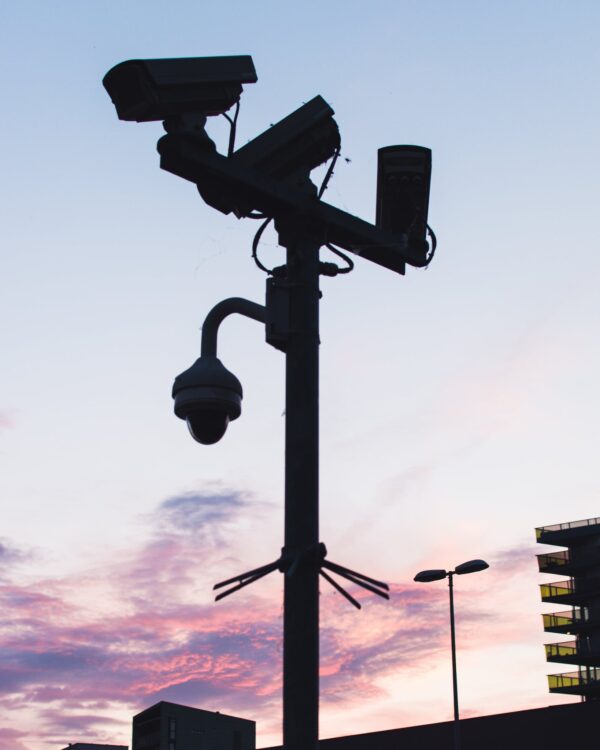
Camera Quality and Capabilities
Resolution and Image Clarity
The resolution of a solar security camera is a key indicator of its image quality. Higher resolution cameras capture more detailed images, making it easier to identify faces, license plates, and other important details. Standard resolutions include 720p (HD), 1080p (Full HD), and higher resolutions like 4K.
However, it’s important to balance resolution with storage and bandwidth requirements. Higher resolution images require more storage space and a stronger wireless connection for smooth streaming and reviewing. Some cameras offer adjustable resolution settings, allowing users to find a balance between image clarity and storage needs.
The lens quality and sensor type also play a significant role in image clarity, especially in low-light conditions. Cameras equipped with night vision capabilities, either through infrared (IR) technology or low-light lenses, can capture clear images in dark environments, ensuring round-the-clock surveillance effectiveness.
In conclusion, when evaluating solar security cameras, it’s essential to consider both the efficiency of the solar panel and the quality and capabilities of the camera itself. The right combination of these features will ensure a solar security camera system that is both energy-efficient and effective in providing high-quality surveillance.

FAQ of Solar Security Cameras
Are solar security cameras any good?
Solar security cameras can be an excellent choice for outdoor surveillance. They harness the power of the sun to operate, reducing the need for battery replacements and ensuring continuous monitoring. The quality of solar security cameras varies, so it’s important to choose a reputable brand and model for optimal performance.
Which solar security camera is best?
The best solar security camera depends on your specific needs and preferences. Some popular options include brands like Arlo, Ring, and Reolink, each offering various features and price points. To determine the best one for you, consider factors such as video quality, motion detection capabilities, and compatibility with your existing security system.
How long do solar-powered cameras last?
The lifespan of solar-powered cameras can vary depending on their quality and usage. On average, these cameras can last anywhere from 2 to 5 years. Regular maintenance, such as cleaning the solar panels and ensuring proper positioning for sunlight exposure, can help extend their lifespan.
How much do solar-powered cameras cost?
Solar-powered security cameras come in a range of prices. Basic models can start at around $100, while more advanced and feature-rich options can cost several hundred dollars. It’s essential to consider your budget and the specific features you require when choosing the right solar-powered camera for your security needs.

Installation and Maintenance of Solar Security Cameras
Choosing the Right Location for Solar Security Cameras
Solar Exposure and Environmental Considerations
The effectiveness of a solar security camera largely depends on its exposure to sunlight. When selecting a location for installation, it’s crucial to ensure that the solar panel receives maximum solar exposure throughout the day. This means avoiding shaded areas or places where buildings, trees, or other structures may block sunlight, especially during peak sun hours.
Environmental factors also play a significant role. The location should be chosen considering local weather patterns, such as heavy snowfall or frequent storms, which might obstruct the panel or damage the camera. It’s also wise to consider the direction of the sun throughout the year and any potential changes in the environment that could affect sunlight exposure, like seasonal tree foliage.
Mounting and Angle for Optimal Performance
The angle at which the solar panel is mounted affects its efficiency. In general, the panel should be tilted at an angle equal to the latitude of the location, facing true south in the Northern Hemisphere and true north in the Southern Hemisphere. This positioning ensures that the panel receives direct sunlight for the longest possible duration each day.
Some solar security camera outdoor come with adjustable mounts, allowing users to change the angle of the panel as needed. This flexibility can be particularly beneficial in regions with significant seasonal variations in the sun’s position.
Maintenance Tips for Longevity for Solar Security Cameras
Cleaning and Care of Solar Panels
Regular maintenance is key to the longevity and efficiency of solar security cameras. One of the most important aspects of maintenance is keeping the solar panels clean. Dust, debris, bird droppings, and other substances can accumulate on the panel surface, significantly reducing its efficiency.
The panels should be cleaned regularly with water and a non-abrasive sponge or cloth. For locations with heavy snowfall, gently removing snow from the panels is necessary to ensure continued exposure to sunlight. It’s also recommended to check for any buildup of leaves or other materials around the camera and panel, especially after storms or high winds.
In addition to cleaning, it’s important to periodically check the hardware and fittings, ensuring that the camera and panel are securely mounted. Loose fittings can lead to misalignment of the solar panel or damage to the camera, especially in windy conditions.
By choosing the right location and adhering to a regular maintenance schedule, users can maximize the performance and lifespan of their solar security cameras, ensuring efficient and reliable security surveillance powered by renewable energy.

Integration of Solar Security Cameras with Home Security Systems
Compatibility with Existing Systems
The integration of solar security cameras with existing home security systems is a vital consideration for homeowners looking to enhance their security infrastructure. Most modern solar security cameras are designed to be compatible with a wide range of security systems, including alarms, sensors, and other surveillance devices.
This compatibility often involves standard communication protocols like Wi-Fi, Zigbee, or Z-Wave, allowing the solar cameras to seamlessly connect and communicate with other components of the home security system. This integration is essential for creating a cohesive and efficient security network within the home.
Integration with Alarms and Other Security Devices
Solar security cameras can typically be synchronized with home alarm systems, motion detectors, and other security devices to create a comprehensive security setup. For example, if a motion sensor is triggered, the solar camera can automatically start recording, or if the camera detects unusual activity, it can send a signal to the home alarm system to alert homeowners or security services.
This level of integration not only enhances the overall effectiveness of the home security system but also provides a more robust response to potential security breaches, ensuring timely and appropriate actions are taken.
Remote Monitoring and Mobile App Functionalities
One of the most appealing aspects of modern solar security cameras is their ability to integrate with mobile apps for remote monitoring and control. These apps allow homeowners to view live feeds from their cameras, receive notifications and alerts, and even control camera functions such as pan, tilt, or zoom from anywhere in the world.
This remote capability is especially beneficial for individuals who are often away from home, providing peace of mind that their property is under watchful surveillance. Additionally, many of these apps offer cloud storage solutions, enabling users to store and access recorded footage remotely.
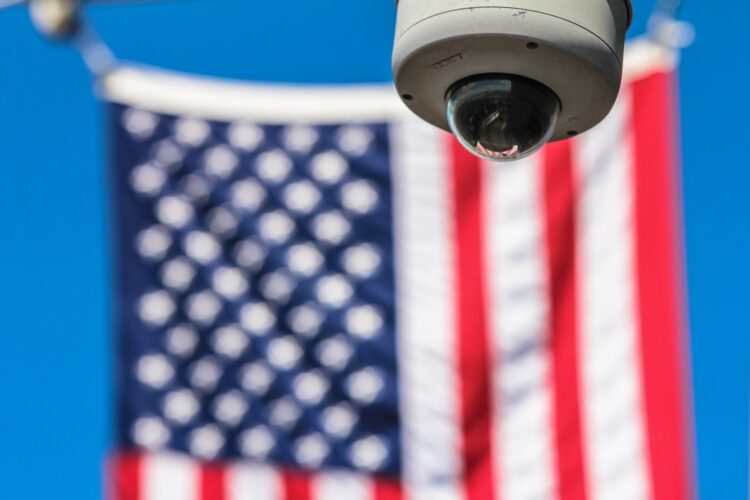
Advantages of a Unified Security Setup with Solar Security Cameras
Enhanced Security Through Comprehensive Coverage
Integrating solar security cameras into a unified home security system ensures comprehensive coverage of the property. This holistic approach to security allows for multiple layers of protection, making it more difficult for intruders to breach the system without detection.
By covering all potential entry points and areas of vulnerability with a combination of cameras, alarms, and sensors, homeowners can create a formidable barrier against unauthorized access, significantly enhancing the safety and security of their property.
Ease of Management and User-Friendly Interfaces
Another advantage of a unified security setup is the ease of management and user-friendly interfaces provided by integrated systems. Most modern security systems offer centralized control, either through a central panel in the home or a mobile app, allowing homeowners to manage all aspects of their security from one place.
These interfaces are generally designed to be intuitive and easy to use, making it simple for homeowners to monitor their property, adjust settings, and review footage. This user-friendly approach ensures that even those with limited technical knowledge can effectively manage and utilize their home security system.
In conclusion, the integration of solar security cameras into home security systems offers a range of benefits, from enhanced security coverage to ease of management and remote monitoring capabilities. These integrated systems provide a more robust and efficient approach to home security, leveraging the latest in technology to protect homes and families.
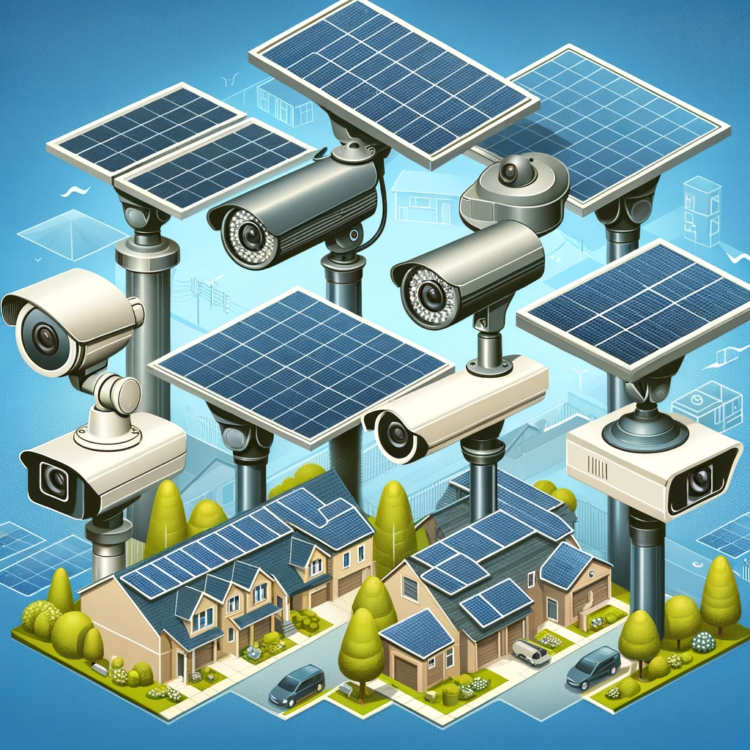
Future Trends and Innovations of Solar Security Cameras
Advancements in Solar Technology
Emerging Trends in Solar Panel Efficiency
The future of solar security cameras is intrinsically linked to advancements in solar technology, particularly in improving solar panel efficiency. Emerging trends include the development of more efficient photovoltaic cells capable of converting a higher percentage of sunlight into electricity. Innovations like perovskite solar cells and bifacial solar panels, which can absorb light from both sides, are poised to significantly enhance solar panel performance.
These advancements not only promise to increase the energy output of solar panels but also open up new possibilities for the design and placement of solar security cameras. With higher efficiency, cameras could become smaller, more discreet, and more versatile in terms of where they can be installed, while still maintaining high energy capture rates.
Innovations in Battery Storage and Camera Technology
Advancements in battery technology are also critical for the future of solar security cameras. The development of more compact, long-lasting batteries will allow solar cameras to store more energy, ensuring more consistent performance even during periods of low sunlight.
Innovations in camera technology are equally important. Future solar security cameras may feature higher-resolution sensors that consume less power, more efficient wireless technologies for data transmission, and enhanced durability to withstand extreme weather conditions.
The Role of AI and Machine Learning of Solar Security Cameras
Intelligent Motion Detection and Alert Systems
The integration of Artificial Intelligence (AI) and Machine Learning (ML) in solar security cameras represents a significant leap forward. AI-powered cameras can offer intelligent motion detection, differentiating between various types of movement, such as people, animals, or vehicles, and reducing false alarms.
These smart cameras can also learn from their environment, recognizing regular patterns and activities. This ability to discern between normal and unusual activities can lead to more accurate and timely alerts, ensuring that users are notified only when there’s a genuine security concern.
Predictive Analytics for Security Enhancement
Predictive analytics is another area where AI and ML can play a transformative role in solar security cameras. By analyzing historical data and identifying patterns, these systems can predict potential security threats or vulnerabilities. This predictive capability allows for proactive security measures, potentially preventing incidents before they occur.
For instance, if a camera identifies a pattern of activity at a certain time or in a specific area that previously led to security breaches, it can alert homeowners or security personnel in advance. This proactive approach to security, powered by AI and ML, could redefine how we protect our homes and businesses in the future.
In conclusion, the future of solar security cameras is bright, with advancements in solar panel efficiency, battery storage, camera technology, and the integration of AI and ML. These innovations promise not only to enhance the performance and capabilities of solar security cameras but also to revolutionize the way we approach security and surveillance.
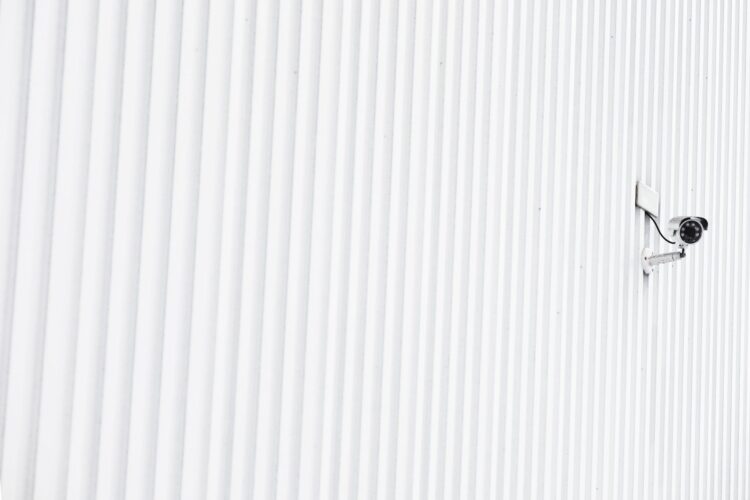
Conclusion to Solar Security Cameras
Recap of the Advantages of Solar Security Cameras
Solar security cameras represent a significant advancement in the field of surveillance and security. By harnessing solar power, these cameras offer a sustainable, eco-friendly solution that reduces dependency on traditional power sources. Their advantages are manifold: they are cost-effective, reducing energy bills and maintenance costs; they are versatile, capable of being installed in various locations without the need for wiring or electrical connections; and they are reliable, with the ability to store solar energy for continuous operation.
Furthermore, the integration of solar security cameras with existing home security systems enhances overall security coverage. Their compatibility with remote monitoring apps and other smart home devices provides users with a comprehensive, user-friendly security solution. The advancements in solar panel efficiency, battery storage, and camera technology, combined with the potential of AI and Machine Learning, point towards a future where security systems are more efficient, intelligent, and adaptable.
The Future Outlook for Solar-Powered Security Solutions
Looking forward, the future of solar-powered security solutions is poised for significant growth and innovation. As solar technology continues to advance, we can expect to see even more efficient and powerful solar security cameras. The integration of AI and predictive analytics will make these cameras not only reactive to security breaches but also proactive in preventing them.
The trend towards sustainability and renewable energy sources is likely to increase the adoption of solar-powered devices, and solar security cameras will be at the forefront of this movement. They stand as a testament to how technology can be harnessed not only for convenience and security but also for the betterment of the environment.
Additional Resources Solar Security Cameras
For those interested in further exploring the world of solar security cameras, a wealth of resources is available:
- Educational Materials: Websites like Solar Energy Industries Association (SEIA) and the International Renewable Energy Agency (IRENA) offer comprehensive information about solar technology and its applications.
These resources serve not only as educational tools but also as gateways to staying updated with the latest developments in this rapidly evolving field. As solar security cameras continue to evolve, they promise to play an increasingly vital role in both our security and our journey toward a more sustainable future.
Best Electric Products – Solar Products Category
Related articles: Solar Electric Fences for 2024 – Best 8 Solar Fence Review, Solar Electric Fence – #1 Best of Guides, Top 3 – Best 250 Watt Solar Panel, How to Clean Solar Lights: 7 Steps to Boost Performance,



